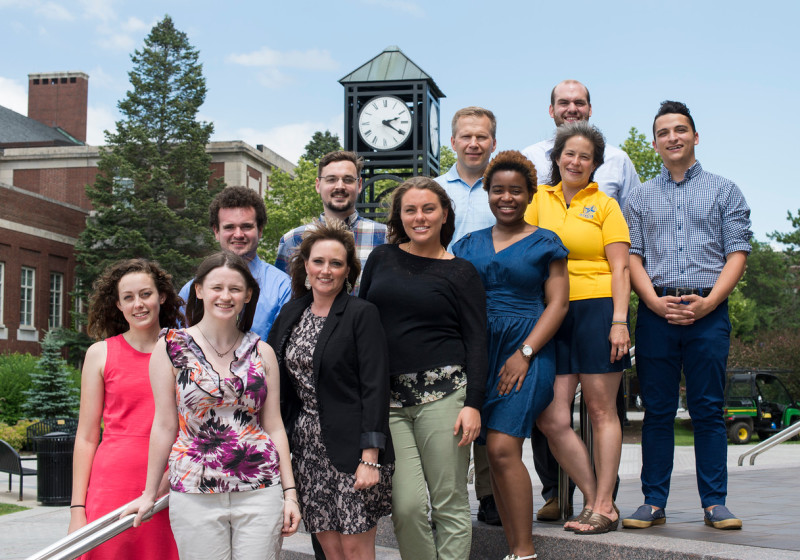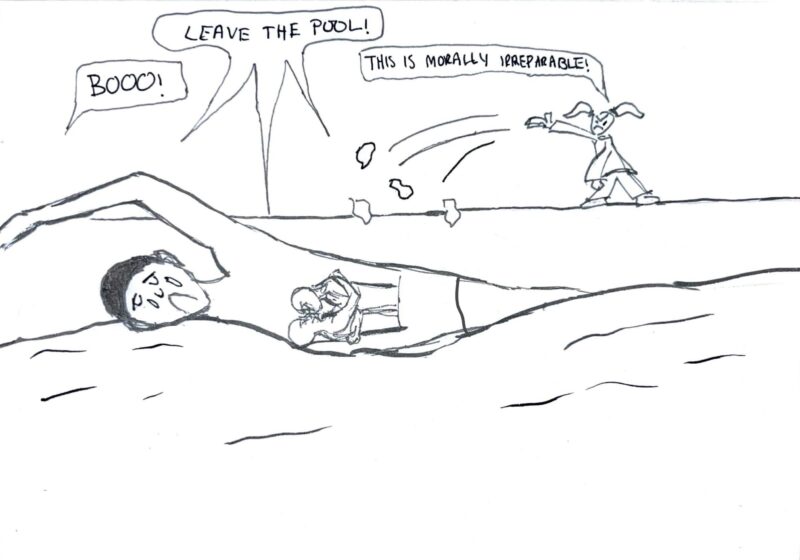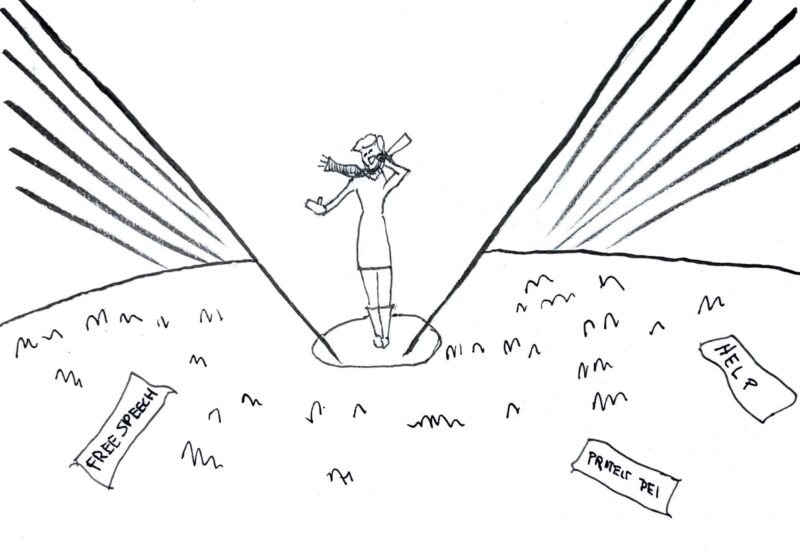When he was a freshman, junior Tristan Ford noticed something wrong with one of his hallmates. An international student, the girl was sleeping through classes and spending long nights awake talking to family and friends from home. Concerned about her transition to college, Ford filed a CARE report.
While the student ended up transferring, the experience allowed Ford to realize the importance of early freshmen connections. He began mentoring incoming international students and volunteering for Orientation.
Now, he’s a Senior Orientation Volunteer (SOV) and an International Student Mentor (ISM), working with Orientation staff to welcome students to campus.
“For me, Orientation is about connection,” Ford said Sunday, the move-in day for international students. “Not only an opportunity to learn about the University’s resources, but also introduce incoming students to each other and foster new friendships.”
Orientation runs from Tuesday, Aug. 25, to Sunday, Aug. 30, with a full flight of events scheduled.
As an SOV, Ford helps “bring all the pieces of Orientation that the leaders have designed together.” SOVs arrive earlier than other volunteers and work closely with the leadership, assisting with specific tasks and becoming their partners in a way.
To Ford, SOVs are problem-solvers; they deal with day-to-day issues.
Senior Jessica Rose, another SOV, confirmed this: “The Senior Orientation Volunteers are given more responsibility and are the people that the Orientation Leaders can turn to for assistance.”
Like Ford, Rose was inspired to get involved with Orientation after her freshman year. She joined UR Bhangra and Ballet Performance Group and, wanting to dig deeper into campus life, began volunteering for Orientation. “I remember my Orientation helping me feel connected and welcomed into the college community,” she said, echoing Ford’s thoughts. “I wanted to give back and be a part of that experience.”
Propelling Rose’s efforts has been her passion for UR, which she has enjoyed sharing with incoming students for three years. “It is so rewarding to know that all of the hard work the Orientation staff and volunteers put in makes a difference to the freshmen class,” she said.
As a bonus, Rose usually gets to perform with one or both of her dance groups during Orientation, boosting to her excitement for the week.
Ford feels similarly about his orientation role as an ISM. Incoming international students are split into groups and paired with mentors with similar majors to the ones they’re considering. For Ford, that means his 20 students are all looking to study fields similar to Biomedical Engineering. “Throughout fall semester I will help guide these students academically, socially, and mentally through the obstacles of transitioning to not only college life, but U.S. life as well,” he said.
In detailing what helping out with Orientation means to him, Ford explained the science behind it all. “Students who form better social connections early on will enjoy more resilience to stress and benefit from having peers who are also transitioning to college life,” he said. “My job is to do everything I can to ensure a student’s mind is at ease so they can be themselves, have fun and meet new friends.”
Ford and Rose’s experiences highlight the inner-workings of Orientation, which include everything from minutiae about the placement of names on programs to stuffing student bags with information and gifts.
Both described the buildup to UR’s welcome week as chaotic, though still fun.
While Orientation is planned out months in advance, Ford said, “it’s not until…a few days before move-in that we have enough people to bring everything together.”
But for all its stress, orchestrating an event like Orientation pays plenty dividends—not only in the smiles of new students with newfound homes, but also in the friendships forged among those pulling everything together.
By the end of the week, Rose said, “[the Orientation staff and volunteers] become such great friends.”
As well, both Ford and Rose picked up skills they feel will aid them in their future endeavors.
“Orientation has helped me learn how to collaborate and communicate effectively with others, how to manage my time and how to stay calm and be efficient under pressure,” Rose said. “My future plan is to be a nurse, and these skills I have developed through Orientation will definitely help.”
Eventually, Ford said, he hopes “to take on a career helping others, and Orientation is one opportunity for me and other undergraduates to give back.”
Director of Orientation Eleanor Oi ‘13S explained that when assembling her team, she tries to find “students and staff who want to be a part of the fun and excitement, people who care about the University and want to give back for nothing more than food and a t-shirt.”
Before taking on the reins of Orientation at UR, the Simon School alumna worked in residential life capacities at other colleges and always liked seeing students move in. Welcoming people to campus appealed to her, especially at a place like UR, she said.
Looking to the future, Oi wants only to see Orientation get better and better.
“I want Orientation to be a time when the new students can learn about why the University of Rochester is an amazing place,” she said. “Find their way around campus. Feel confident in selecting classes and feel happy here. To be excited to start their academic life here for the next four years.”
Trombly is a member of the class of 2018.






